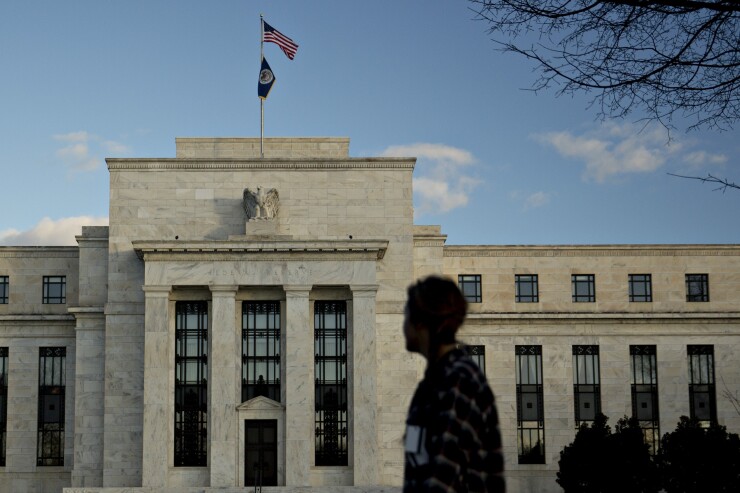(Bloomberg) -- U.S. stocks remained higher after minutes from the Federal Reserve’s latest meeting showed officials favored a gradual approach to raising interest rates, though several anticipated a hike “relatively soon.”
The S&P 500 rose 0.3% to 2,142.13 at 2:55 p.m. in New York, near its average price during the past 100 days after the steepest selloff in four weeks took it below that closely watched level for the first time since June.
“Several members judged that it would be appropriate to increase the target range for the federal funds rate relatively soon if economic developments unfolded about as the committee expected,” the minutes from the Sept. 20-21 gathering in Washington showed. “It was noted that a reasonable argument could be made either for an increase at this meeting or for waiting for some additional information on the labor market and inflation.”
The Federal Open Market Committee left the benchmark lending rate unchanged in a range of 0.25% to 0.5% for the sixth straight meeting last month, even as a majority of the 17 participants still forecast at least one hike this year.

Uncertainties over the economic outlook and the desire by the committee to assure that job growth remains strong are likely to delay another rate increase until December, federal funds futures traders are betting. Fed officials next meet Nov. 1-2, just before the election on Nov. 8.
Equity investors are on edge after Alcoa yesterday dropped the most in seven years following results that missed analysts’ estimates. The release came as projections called for a sixth quarter of falling earnings for the S&P 500, while speculation intensified that the Fed will raise borrowing costs this year. The benchmark U.S. 10-year note yield rose to a four-month high Wednesday, while traders place the odds of a move in December at 67%, up from 50% two weeks ago.
“The combination of bad out-the-gate earnings reports, rising sense of Fed raising rates, and bond yields going up is a tough combination for stocks,” said Jim Paulsen, chief investment strategist at Wells Capital Management, which manages about $350 billion. “The market is going to need a show of momentum economically and on earnings to handle higher yields.”
Recent economic data beating forecasts and comments by Fed officials have fueled bets that the central bank is on a path to increase rates this year. Investors will watch reports on retail sales, consumer sentiment and producer prices due on Friday.
“Some investors are a bit nervous,” said Benno Galliker, a trader at Luzerner Kantonalbank in Lucerne, Switzerland. “Hiking once is fine, but a series of increases could hurt the market. While good for banking, it means higher financing costs, which means lower profits for firms.”
Railroad CSX will release earnings after Wednesday’s market close, while Delta Air Lines, JPMorgan Chase and Citigroup are also among those scheduled to report this week. Analysts forecast a profit drop of 1.6% for S&P 500 companies in the third quarter.
“The trend coming out of the industrials companies that reported is very weak, but we’re not seeing any indication that that’s bleeding outside of industrials,” said John Augustine, chief investment officer for Huntington Bank in Columbus, Ohio, which oversees more than $17 billion. “There’s still the potential for a 2 to 3% upside surprise overall to earnings estimates and that will end the profits recession.”
After surging as much as 7.2% this year through a record in August, the S&P 500 has failed to push higher. On Tuesday, the gauge closed at an almost one-month low, while the CBOE Volatility Index surged 15%. The measure of expected stock-price swings added 3.3% on Wednesday.





